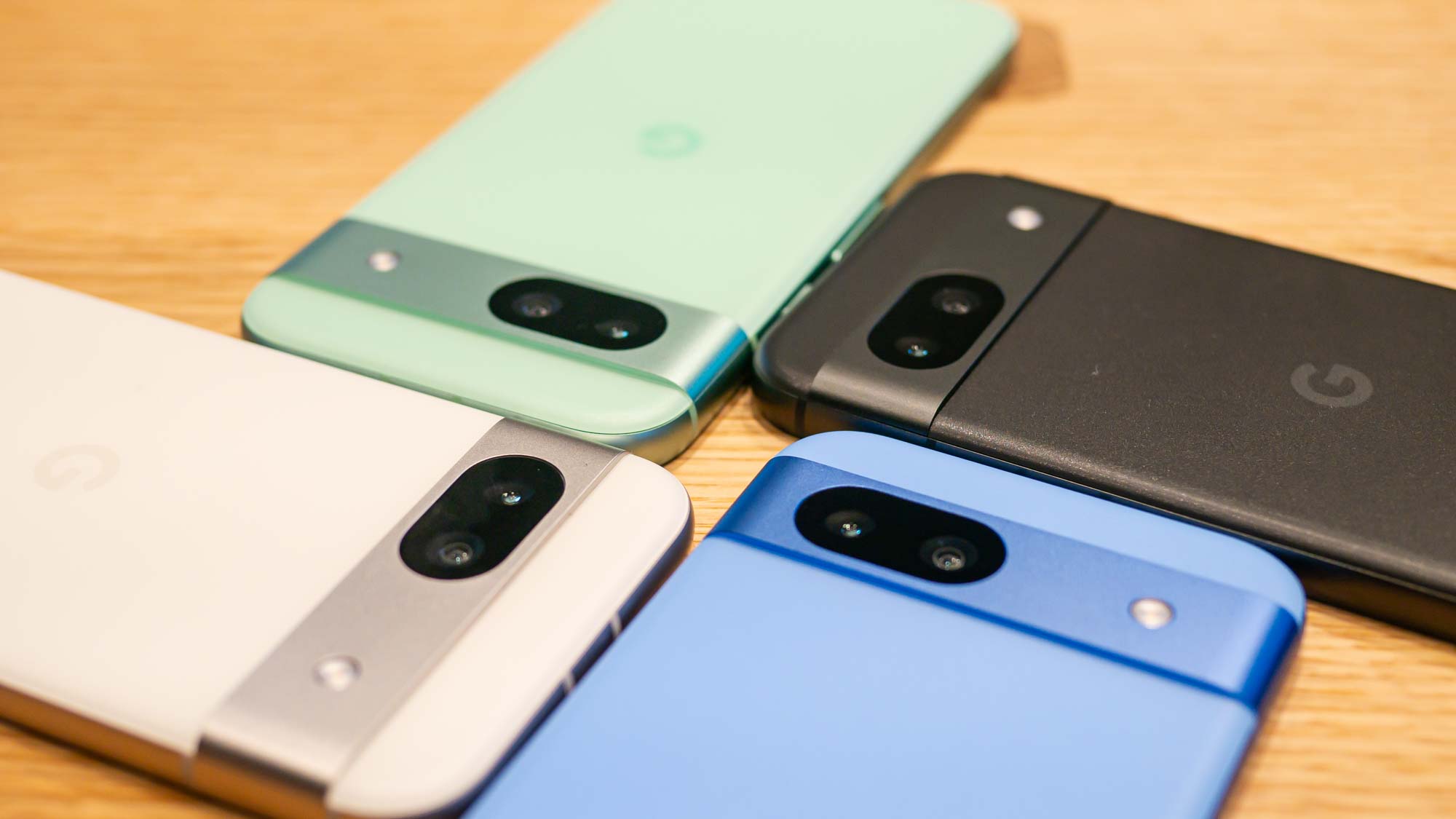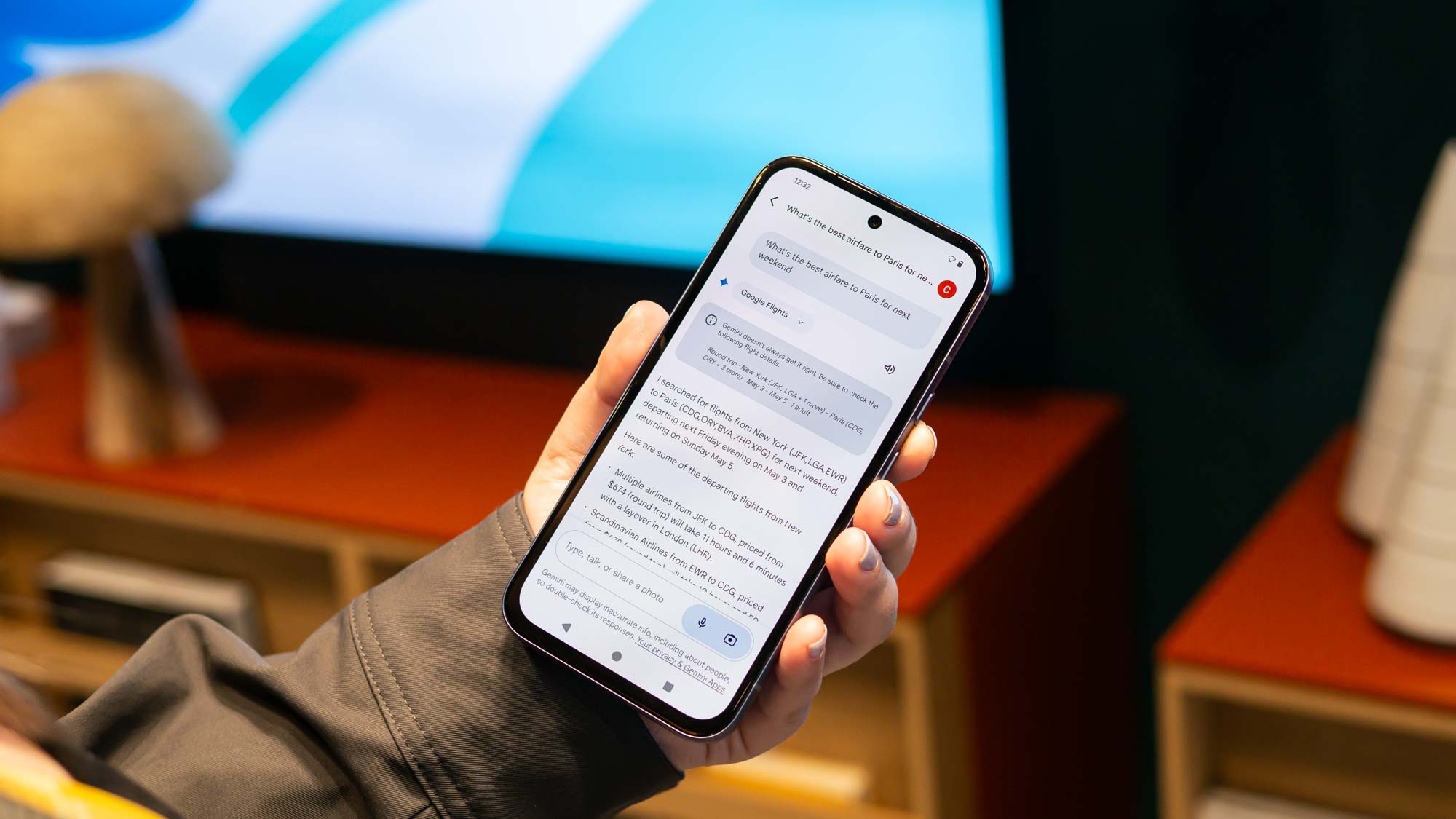
The main reason why I’ve been using a Pixel 8 Pro as a daily driver for over six months now isn’t just because of its excellent cameras, which held up nicely in my Pixel 8 Pro vs. Galaxy S24 Ultra photo shootout. Instead, it's because of the Pixel 8 Pro's extraordinary AI features.
What's even more astounding is that the Pixel 8a adopts some of those capabilities — I thought AI features were only going to be available on flagship caliber models as an incentive to choose them over less expensive handsets.
Google injects the Pixel 8a with more substantial hardware upgrades than its predecessor, so much so that it makes a strong case in being included in both our best Android phones and best cheap phones rankings. Yet it’s those AI features that largely separate it from other midrange phones in its class.
And quite frankly, that’s a problem. At least if you're a phone maker other than Google.
A phone that costs less than $500 like the Pixel 8a puts pressure on rivals such as Apple and Samsung to respond with their respective midrange models. Here’s why.
Legitimately helpful AI features

Look, buying a pricey phone often means you're getting more premium features than you would from a device that costs much less. Google must think otherwise, because the Pixel 8a has some of my favorite AI-assisted features that I’ve been enjoying on my Pixel 8 Pro.
At first, I was skeptical that Google’s AI features were going to be gimmicky. That turned out to not be the case with the Pixel 8 series. I was most impressed by the Pixel 8 Pro’s upgraded Call Screen feature, which basically turns Google Assistant into a bona fide assistant that can take calls for me and contextually respond to callers. While the Pixel 8a doesn’t seem to gain all of that AI feature, the ones it does have are just as helpful.
Magic Editor is arguably the best example of the power of AI, seeing that it makes it feel like I’ve instantly become an experienced Photoshop editor who’s trained for years editing photos. With just a few simple steps, I can remove unwanted stuff from photos — with backgrounds getting filled with the help of generative AI. No other midrange phone offers a similar feature.
Samsung’s the closest at keeping up with Google’s rapid pace, but its version for Galaxy AI is still only available on flagship models. Sammy deserves kuods for bringing all of the Galaxy AI features it introduced with the Galaxy S24 series to last year’s Galaxy S23 models and foldable phones. But it stops short of equipping any Galaxy A phones with those capabilities.

Samsung’s closest rival to the Pixel 8a would currently be the Galaxy A35, but it doesn’t gain any Galaxy AI features. Depending on how Samsung prices it, the still unannounced Galaxy S24 FE could be a more likely Pixel 8a rival if it does turn out to get some Galaxy AI features.
Meanwhile, Apple really doesn’t offer anything remotely close to the AI features in the Pixel 8a. Siri’s continually been upgraded, but Apple’s assistant just can’t compare to using Gemini on the Pixel 8a. Of course, this could all change with iOS 18, which is likely to be previewed at the upcoming WWDC 2024 keynote — but Apple has nothing to respond to the Pixel 8a’s AI features. We're still waiting for an iPhone SE that offers a night photography mode.
These are all reasons why the Pixel 8a is so special in the midrange market, so it could be a while before we see anything remotely similar with the competition. The AI wars have begun, and with Google pulling ahead now that we’re nearing the midpoint of the year, I’m really hoping other phone makers can catches up.







